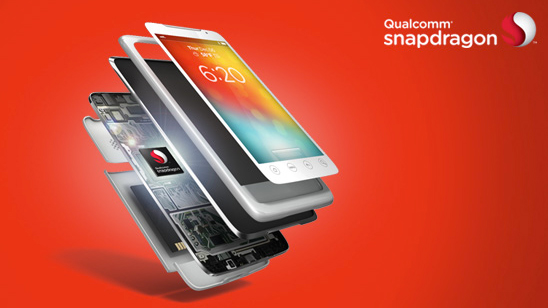Qualcomm picks up Palm, truck-load of other mobile patents from HP
Qualcomm may have big plans

Update: A Qualcomm spokesperson sent over the following rather lengthy statement in response to TechRadar's queries. She clarified some points, explaining more about what these patents cover and what Qualcomm plans to do with them:
"The acquisition further enhances the strength and diversity of our industry-leading mobile patent portfolio and will enable the company to offer even more value to current and future licensees. The patents and patent applications acquired by Qualcomm in this transaction cover many different aspects and features of mobile operating systems (such as rejecting an incoming call with a text and using location as a trigger for reminders), as well as several other technologies used in mobile products such as smartphones and tablets.
"The technologies covered by these patents complement the technologies covered by Qualcomm's existing patents, which include, for example technologies related to cellular and other wireless transmissions of voice and data, semiconductor design technologies, display technologies, and wireless charging technologies in addition to mobile operating system technologies.
"The purchase of these patents signals Qualcomm's commitment to its partners to remain at the forefront of wireless technology in our licensing business as well as our product businesses. Patent acquisitions such as this, along with Qualcomm's continued investment of a large percentage of its revenue in R&D, enable Qualcomm to provide additional value to its licensing customers over time. In addition, Qualcomm generates several billion dollars in annual product sales. We are not and have no plans to become a 'non-practicing entity.'"
Original story below…
Qualcomm has purchased a large batch of patents from HP, raising a number of questions for one company while seemingly wiping the hands for another.
In a press release, the companies said the sale was aimed to "further enhance the strength and diversity of Qualcomm's Incorporated's industry-leading mobile patent portfolio."
Sign up to the TechRadar Pro newsletter to get all the top news, opinion, features and guidance your business needs to succeed!
The portfolio includes roughly 2,400 granted patents and pending applications related to HP's Palm, IPAQ and Bitfone technologies. Most of those - 1,400 - are from the US, while 1,000 are from other countries.
However, they didn't spill the beans on how much Qualcomm paid for the IP.
Big plans, maybe
The announcement says most of these patents cover technologies like "fundamental mobile operating system techniques."
There are no clues as to what Qualcomm plans to do with these patents, besides the press release's vague promise that they "will enable the company to offer even more value to current and future licensees."
Qualcomm has been riding high in recent years, as its Snapdragon brand processors are powering top smartphones like the Samsung Galaxy S4, the HTC One and many others.
HP meanwhile has done its darndest to wash itself of Palm. The company sold its operating system, webOS, to LG early last year. There's no word on how Qualcomm's purchase will affect LG's webOS-based Smart TVs, if at all.
According to Recode.net, HP will retain licensing rights to the patents.
We've asked Qualcomm to elaborate on its plans for this portfolio and will update this article if we hear back.
- In the meantime, check out TechRadar's list of the best tablets available now!
Michael Rougeau is a former freelance news writer for TechRadar. Studying at Goldsmiths, University of London, and Northeastern University, Michael has bylines at Kotaku, 1UP, G4, Complex Magazine, Digital Trends, GamesRadar, GameSpot, IFC, Animal New York, @Gamer, Inside the Magic, Comic Book Resources, Zap2It, TabTimes, GameZone, Cheat Code Central, Gameshark, Gameranx, The Industry, Debonair Mag, Kombo, and others.
Micheal also spent time as the Games Editor for Playboy.com, and was the managing editor at GameSpot before becoming an Animal Care Manager for Wags and Walks.
